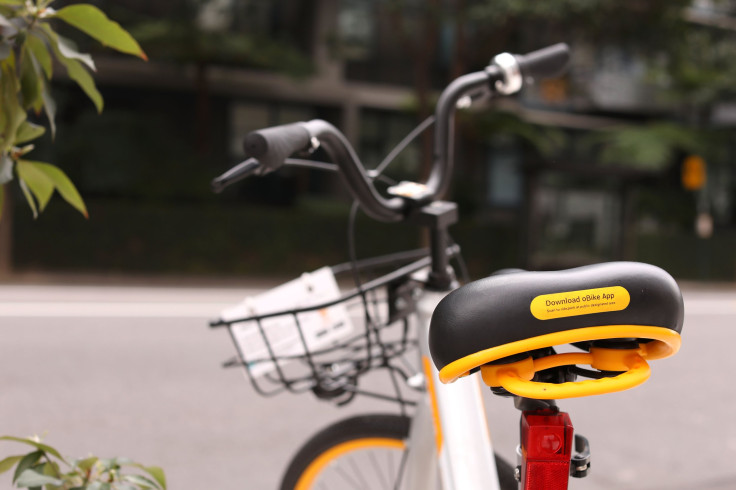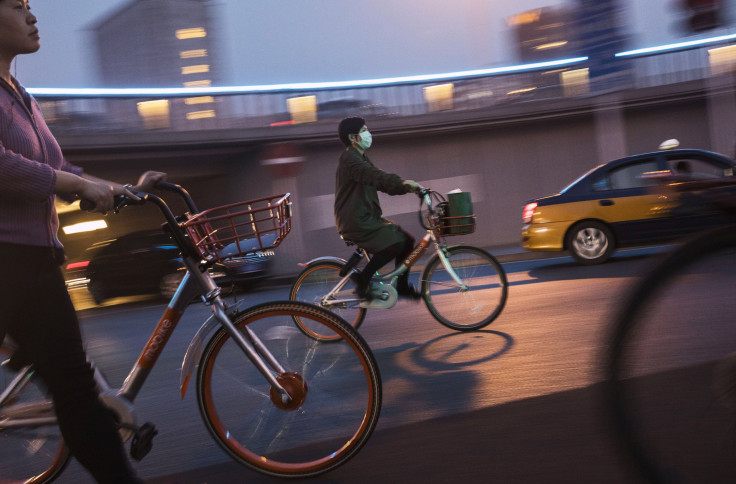Cycling To Work Minimizes Risk Of Early Death, Research Shows

There are numerous things around us that lead to anxiety and stress - a heavy workload, financial worries and a cluttered home. However, commuting to work daily is one of the most universally loathed problems, and which is also significant cause of stress.
Apart from the unpleasant experience of restricted at one spot in a bus or car for hours, long commutes have been associated to a number of negative health impacts, including high stress levels, sleep disorders, weight problems, and even a shorter life span.
Regular long commutes not just affect your physical health, but also takes a toll on your mental well-being, Impacting the way you think about other people.
The average commuter around the world spends about an hour every day commuting to and from work, with some people even spending three hours or more on it.
Furthermore, researchers have linked driving to higher amount of negative consequences than the ones you have already heard of.
To solve the problem of such passive commuting, more researchers and scientists are looking at the benefits of active commuting that involve walking, biking and even hover-boarding, to make it a pleasant and healthier experience.
According to a recent research, cycling to work daily minimizes the risk of early death by at least 40 percent. If this reason alone does not make you hop on your bike and head to your workplace, there are other immediate benefits of cycling: being less stressed and more productive at the workplace.
A study conducted by McGill University, Montreal concluded that the bicycle is the best and least stressful way to travel to work. A paper based on the study was published in Transportation Research in October 2015.
For another paper published in Transportation Research in February, a team of researchers surveyed over 5,000 students, staff, and faculty at the the university in order to gather information on how their daily commute had an impact on their lives.
The study found that cycling was not only the most "energizing" way to commute to work, as compared to walking, driving, or taking transit, but it was also the one that had the least negative effects on punctuality.
The study concluded "Our results show that weather conditions and mode of transportation have significant impacts on an individual’s energy at work and punctuality. The models indicate that drivers have the lowest odds of feeling energized and the highest odds of arriving late for work. Cyclists, meanwhile, have the highest odds of feeling energized and being punctual. Overall, this study provides evidence that satisfaction with travel mode is associated with higher odds of feeling energized and being punctual."

A Swedish study in 2011 also discovered that couples where one partner spent at least 45 minutes each day on commuting had a 40 percent higher chance of getting divorced.
"Commuting is ... a mundane task about as pleasurable as assembling flat-pack furniture or getting your license renewed, and you have to do it every day," journalist Annie Lowrey wrote in her Slate article, "Your Commute Is Killing You," after the study was published. "If you are commuting, you are not spending quality time with your loved ones. You are not exercising, doing challenging work, having sex, petting your dog, or playing with your kids (or your Wii)."
There have been evidences that cycling to work is good for health too. A review in the Scandinavian Journal of Medicine & Science in Sports called "Health benefits of cycling," systematically reviewed and evaluated 16 different studies involving everything related to commuting by bicycle to association between cycling and lower instances of colon cancer.
Overall, the review determined that 14 of the 16 studies showed the health benefits of cycling to work, even when it is done at a slow pace for shorter distances.
Also, 14 of the studies showed that there’s a strong association between cycling and mortality. The review concluded that "riding to work will improve your fitness, reduce the risk of death by cardiovascular disease or cancer, as well as risk of obesity."
But if cycling is not an option, there are also other ways in which you can de-stress your commute.
Dr. Frank Ghinassi, associate professor of psychiatry at the University of Pittsburgh, told the Huffington Post that you have to remind yourself that the trip from your home to your place is a product of your decisions. This, he said, will give you greater control over your commute and will minimize anxiety.
"The attribution is that it’s the traffic that’s making us anxious," Ghinassi said. "But the control over whether we’re going to be engaged in traffic is really ours. We’ve made lots of decisions ... over things that we can control, and the tradeoff is exposing ourselves to traffic."
Your commute is also the best time to practice mindfulness.
Meditation experts at mindfulness app Headspace recommend: "Try being mindful of your environment and the tendency to resist it; being mindful of the emotions as they rise and fall, come and go ... mindful of wanting to be somewhere else, of wishing time away; and mindful of wanting to scream out loud or put your foot down in the car," the Huffington Post reported.
© Copyright IBTimes 2024. All rights reserved.




















